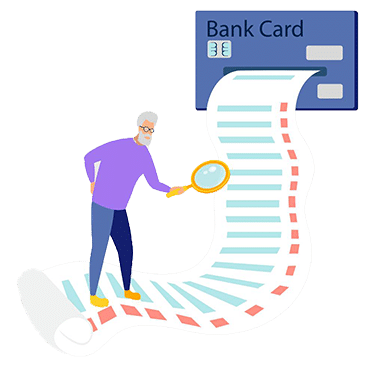Debt Management Plan DMP Help & Advice
Debt Management Plan, commonly known as a DMP, is where either you or a third party negotiate lower monthly payments to your creditors. It isn’t legally binding unlike other debt solutions, such as an Individual Voluntary Arrangement (“IVA”).
How do Debt Management Plans work?
Your payments are proposed based on what you can reasonably afford. This is worked out through a breakdown of your monthly income and expenditure. The payments are usually paid over a longer period. Payments can also be revised should your circumstances change.
Unlike an Individual Voluntary Arrangement, you will repay your debt in full. Your creditors may agree to freeze interest and fees on the debts included, but this is not guaranteed.
If you opt for a private debt management company, they will charge you a fee for negotiating and administering your DMP. However, there are some debt charities that offer the service for free.
If your creditors agree to the reduced payments offered, all you need to do is keep up with your payments.
Am I eligible for a debt management plan?
There’s no maximum or minimum debt level needed to enter a DMP, but there are some things to consider before applying.
A DMP is good for those who are struggling to keep up with their debt repayments, but who can afford to consistently pay smaller amounts over a longer period of time. It’s also good for those whose circumstances are likely to improve over time and who have a steady and relatively stable income. Before applying for a DMP, you should be sure that you will still be able to pay your priority bills, such as your mortgage/rent and council tax.
What debts can be included in a DMP?
Not all debts can be included in a DMP as it is designed to help with your non-priority debts. Debts suitable for this solution include:
Personal loans
Credit card debt
Overdrafts
Bank/building society loans
Payday loans
Store cards/credit
Money borrowed from friends/family
Debts that are unsuitable for a DMP include:
Council tax
Income tax
Court fines
National Insurance
Hire purchase contracts
Child support or maintenance
TV Licence
Utility bills
Advantages of a debt management plan
As it is an informal solution, your DMP won’t be recorded on an insolvency register
A DMP shows you are willing to pay your debt in full, so your creditors will look at this more favourably
Creditors can freeze interest and charges on your debts
For the most part, DMPs are flexible – allowing changes to be made if your situation changes
They reduce your monthly payments to your debts
You can have less contact with your creditors if you opt to use a third party as they will deal with them on your behalf
Disadvantages of a debt management plan
It can take you a long time to pay back your debt
Freezing interest and charges is not guaranteed from your creditors
You are still liable for your full debt level
It isn’t guaranteed that your creditors will accept the offer of reduced payments
Creditors can still take legal action against you
Your creditors are not obligated to stop contacting you, unlike other debt solutions such as an IVA
Some private DMP providers will charge fees for the service, which can extend the length of the plan
Your credit score could be negatively impacted, making getting further credit more difficult and expensive
The Debt Management Plan Process

Select you DMP provider
You can negotiate a DMP with your creditors directly yourself if you choose to without using a third party. Don’t be afraid to go down this route; you’ll be surpised at just how receptive they can be. If you opt to use a DMP company, an advisor will represent your interests, and remove the stress of direct contact with creditors. A number of debt charities offer DMP services free of charge.
Work out your budget
Next, you must work out how much you can afford to pay in your monthly instalments, by carefully analysing your budget.
If you chose to use a DMP provider, this will involve providing pay slips, bills, and other documents, so that the amount you can afford to pay after essential costs can be calculated.
Submit a suggestion to creditors
Your budget will then be shown to your creditors, who will decide whether or not to accept your new monthly payments. If they accept, they may also agree to freeze ongoing interest and/or charges as a gesture of goodwill.
If your creditors do not accept the new payment plan, you may be eligible for an alternative solution, such as an Individual Voluntary Arrangement, or Debt Relief Order or Bankruptcy.
Make your new monthly payments
If your creditors agree to your new reduced payments, the final step is simply to keep up with them.
If you chose to use a DMP provider, you will make your monthly payment to them rather than directly to your creditors.
This means you have only one payment rather than several, which can make things much more manageable.







